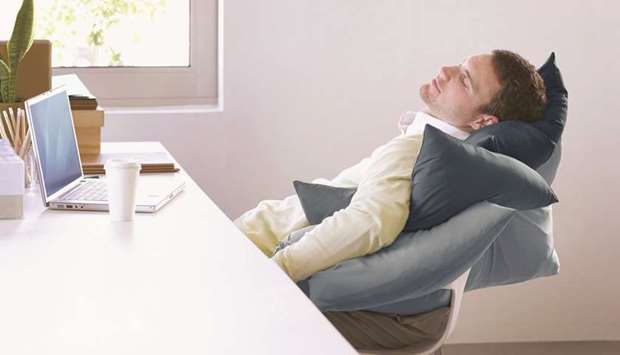Naps need to hire a publicist. Not in China, where desk-side snoozes are a constitutional right; Japan, where inemuri (“sleeping while present”) is a sign you’ve been working hard; or Spain, where siestas are woven into the social fabric. But in the UK, US, Australia and many other western countries – where capitalist rat races are fuelled by flat whites and billable hours – naps have a major image problem. They’re linked with laziness and lethargy; with people who can’t be bothered to get through the day.
Yet now is the perfect time to rebrand them as something we associate with a productive lifestyle. Go for a run! Guzzle a green juice! Take a nap! With a large proportion of people working from home (it is estimated that half the UK workforce will still be doing so at the end of 2020), lots of us have more control than ever over what our working day looks like. Our boss overlords have been forced to loosen the reins. Aside from those awkward Zoom team check-ins we’re pretty much free to do as we please as long as we get our work done. Should we so desire, we can take a 20-minute kip after lunch and emerge pin-sharp for a busy afternoon. After all, the sofa is right there, beckoning us over to enjoy a moment of shut-eye.
There are signs people have already started slipping naps into their routines since working remotely. One survey of 2,000 Americans found 33% were napping daily, while another revealed 25% of Brits were doing the same. A social-media sweep I conducted agreed: from LA to Manila, countless professionals in fields including journalism, law and marketing confessed to enjoying a 20-minute zizz. (Personally, I’ve settled on 12 minutes as the ideal duration.)
Yet the numbers would surely be far bigger if naps had a better reputation. It wasn’t always like this. Salvador Dalí, Aristotle, Winston Churchill, Eleanor Roosevelt, Margaret Thatcher “all powerhouses from history, all great nappers. But somewhere in recent decades, naps disappeared from the zeitgeist. These days they feel less power, more cat.” One London-based PR who’s been enjoying mid-afternoon snoozes lately said I could quote her provided I didn’t mention her name. “I’m conscious my work might not yet be on board with the idea of me napping,” she said conspiratorially, adding: The stigma needs to lift.
That shift can start now. Presumably the more people embrace naps while working from home at home, the more likely it is that the habit will infiltrate office culture if and when we do return. Given that companies are revising their relationships with employees and rethinking office floorplans, it’s not so farfetched to imagine nap pods sprouting up in quiet corners.
I’m prepared to put my hand up for the PR job and help spread the word, though I confess I have a vested interest: I’m already a serial napper. As a dopey Aussie forever on the verge of drifting into dreamland, I’ve always been sceptical of those who smash eight hours’ sleep at night and power through each day. Being awake for 16 hours straight has always seemed to me like an awfully long stretch of time.

